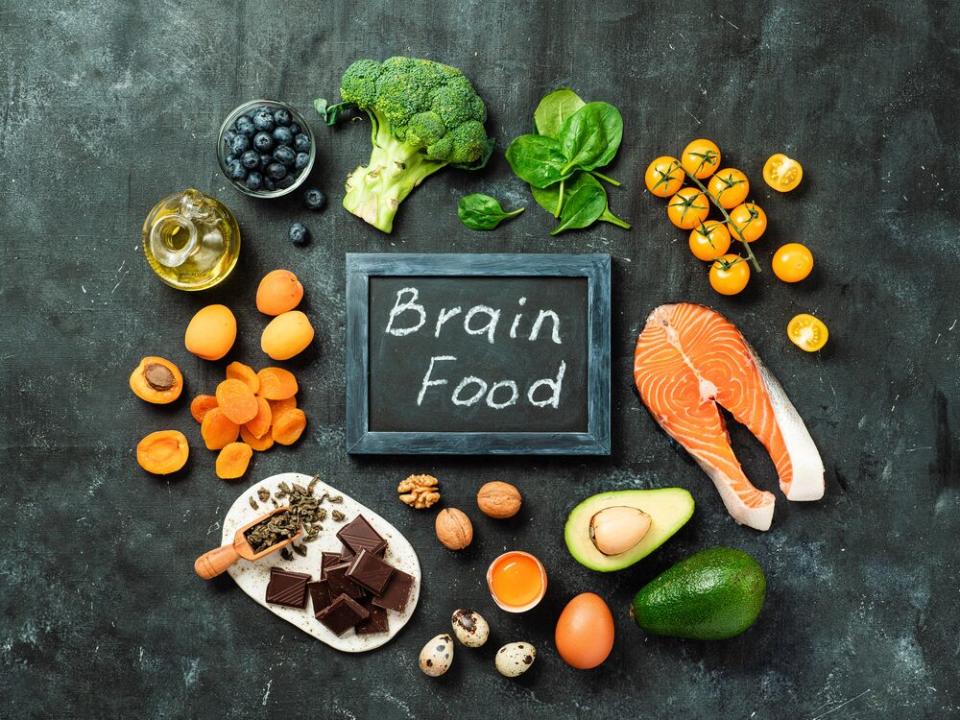2020 Food & Health Trends: Brain Foods Get The Attention They Deserve
Over the past few years, conversations about mental and cognitive health issues like depression, anxiety, and memory loss have become much more open and frequent. This had led many to realize that addressing these is another facet of overall health and self-care. And while societal norms about mental health have slowly evolved, so has research looking at the impact that diet may have on these conditions. In fact, findings from studies like the MIND Diet suggest that food and nutrients may play a much larger role in overall brain health than we ever imagined. This is why we're predicting that eating to improve mental and cognitive health is going to become a huge area of mainstream interest in 2020.
Search for brain-healthy ingredients in your very own customizable meal plans! Subscribe to the Cooking Light Diet today.
The Food-Brain Connection
It can be easy to take all that the brain regulates and does for granted, but the reality is the brain is an organ just like the heart and lungs, working nonstop, 24/7. Because of this, the brain requires a constant supply of energy and nutrients. However, even though it's long been established that diet impacts physical health issues—including risk for conditions like obesity, heart disease, and diabetes—the idea that food may affect cognitive and mental health is a relatively new area of medicine.
But over the past few years, our knowledge and understanding of how the brain functions has grown exponentially. It's clear that there are certain nutrients that the brain needs to function properly. It's also clear that a definite connection between the gut and the brain exists, and while not fully understood, that connection appears to play a role in mood, memory, anxiety, depression, attention, and even risk for degenerative brain diseases like Alzheimer's. In fact, research suggests malnourishment of certain nutrients the brain needs combined with too many less-healthy diet components may trigger changes to occur in the brain's structure. And while it's often easier to identify long-term changes (particularly in cognitive functioning), our diet can affect brain functioning when it comes to mood and memory on a short-term basis as well.

How to Eat For Brain Health in 2020
Based on what we know so far, there are two primary focus areas when it comes to diet and food choices to improve mental and cognitive health. These are:
Eating to reduce damage from free radicals and inflammation in the brain.
Eating to support neurotransmitter production and functioning.
Below I've included some reasoning behind these two primary focus areas, along with what foods appear to facilitate these.
Eating to reduce damage from free radicals and inflammation.
Research suggests that free-radical damage and low-grade inflammation lead to dementia and declining brain health. You can reduce both by doing the following:
Increasing antioxidant-rich foods: Fruits, vegetables, nuts, and healthy oils
Centering diet around anti-inflammatory foods: Leafy greens, berries, cruciferous veggies, nuts, healthy oils, fatty fish with omega-3 fatty acids, green tea, avocados, fragrant herbs and spices
Minimizing inflammatory foods: Saturated fat; trans fat; excessive sodium; fast food; highly processed foods and food with added sugar; refined carbs; excessive calories, caffeine, or alcohol
Eating to support neurotransmitters.
Brain cells communicate through neurotransmitters, and this communication directs many essential body functions such as sleep cycles, hunger, mood, concentration, breathing, heart rate, and muscle movement. Most neurotransmitters are either made from certain nutrients or they require a nutrient to be made. These nutrients include amino acids, B vitamins, choline, vitamin C, iron, and zinc, and a lack of any may directly affect a neurotransmitter's ability to send messages to direct those functions. To prevent this and to support brain health, it's key to consume lots of produce, adequate protein, and healthy fats on a regular basis.
For more information on foods that play key roles in brain health, click here.
Why You'll Hear More About This Topic
Changes in the brain's structure and functioning is an area of research that's hard to measure. It's important to remember that the role that diet and nutrients play in overall brain health is still a new area of medicine. There's still a lot we don't know. This means it's probably smart to be wary of any supplement or product promising a quick fix. However, as public awareness grows, do expect to hear more in 2020 about what you are (or aren't) eating and how that might be affecting your mood, concentration, and memory, particularly when it comes to nutrients associated with neurotransmitters like omega-3 fatty acids and certain B vitamins.
Search for brain-healthy ingredients in your very own customizable meal plans! Subscribe to the Cooking Light Diet today.

